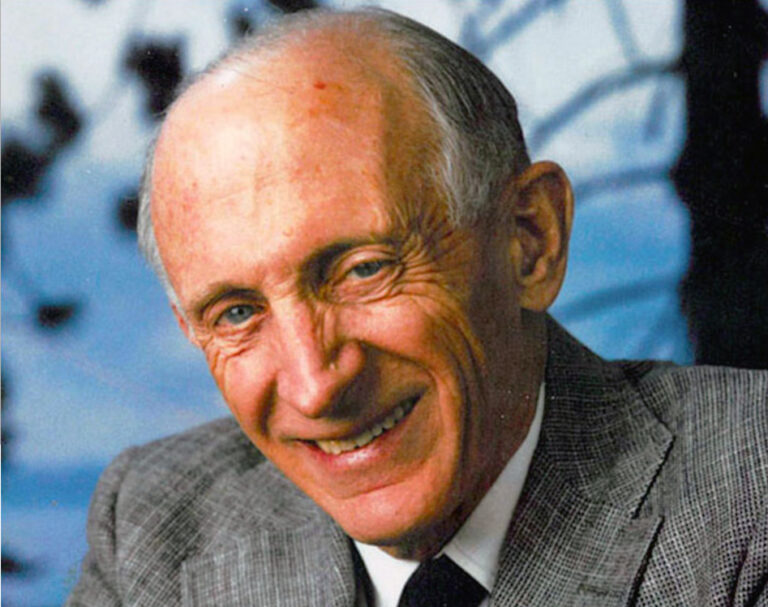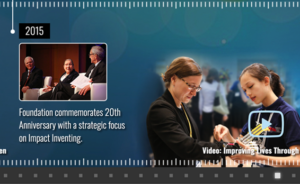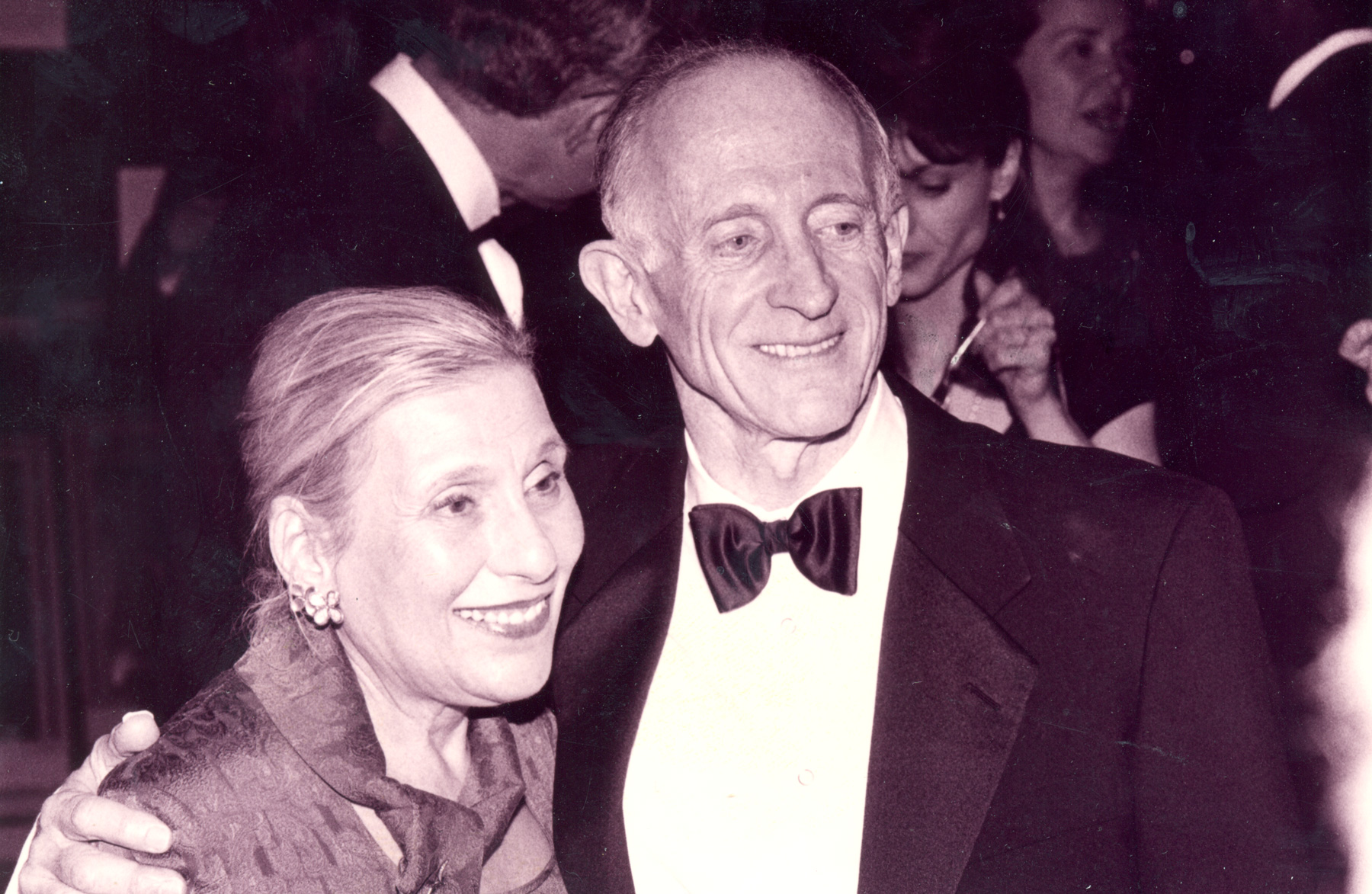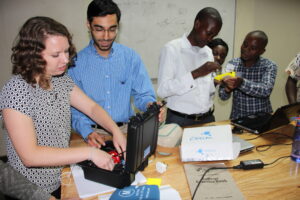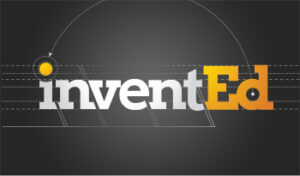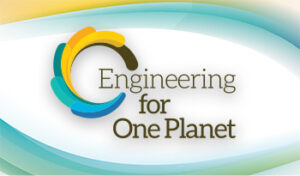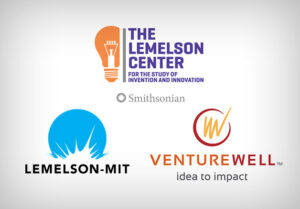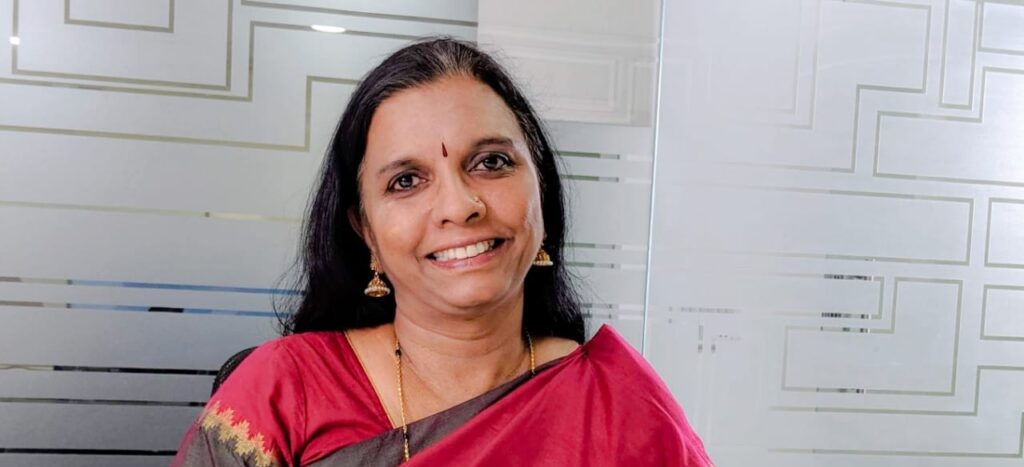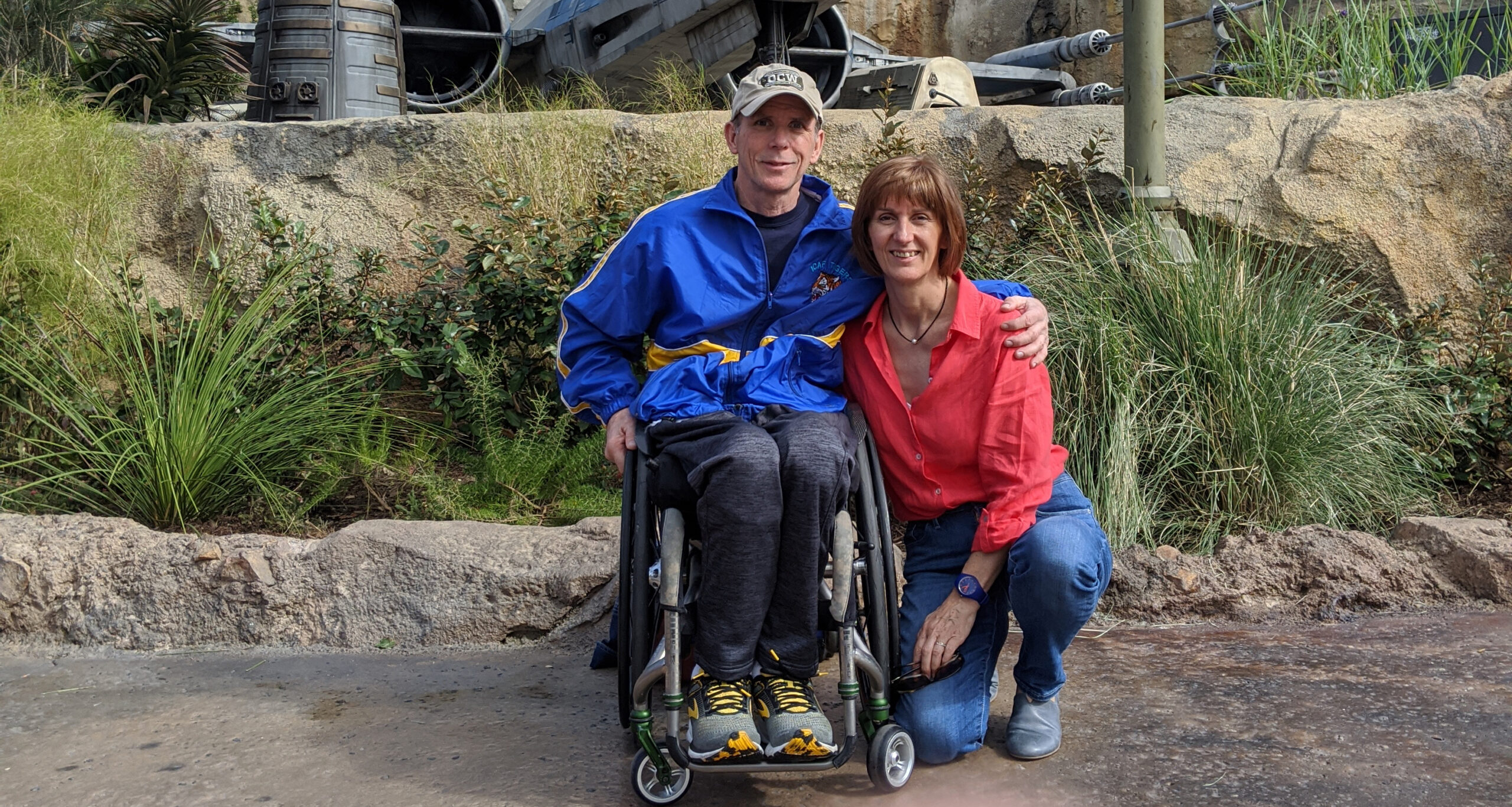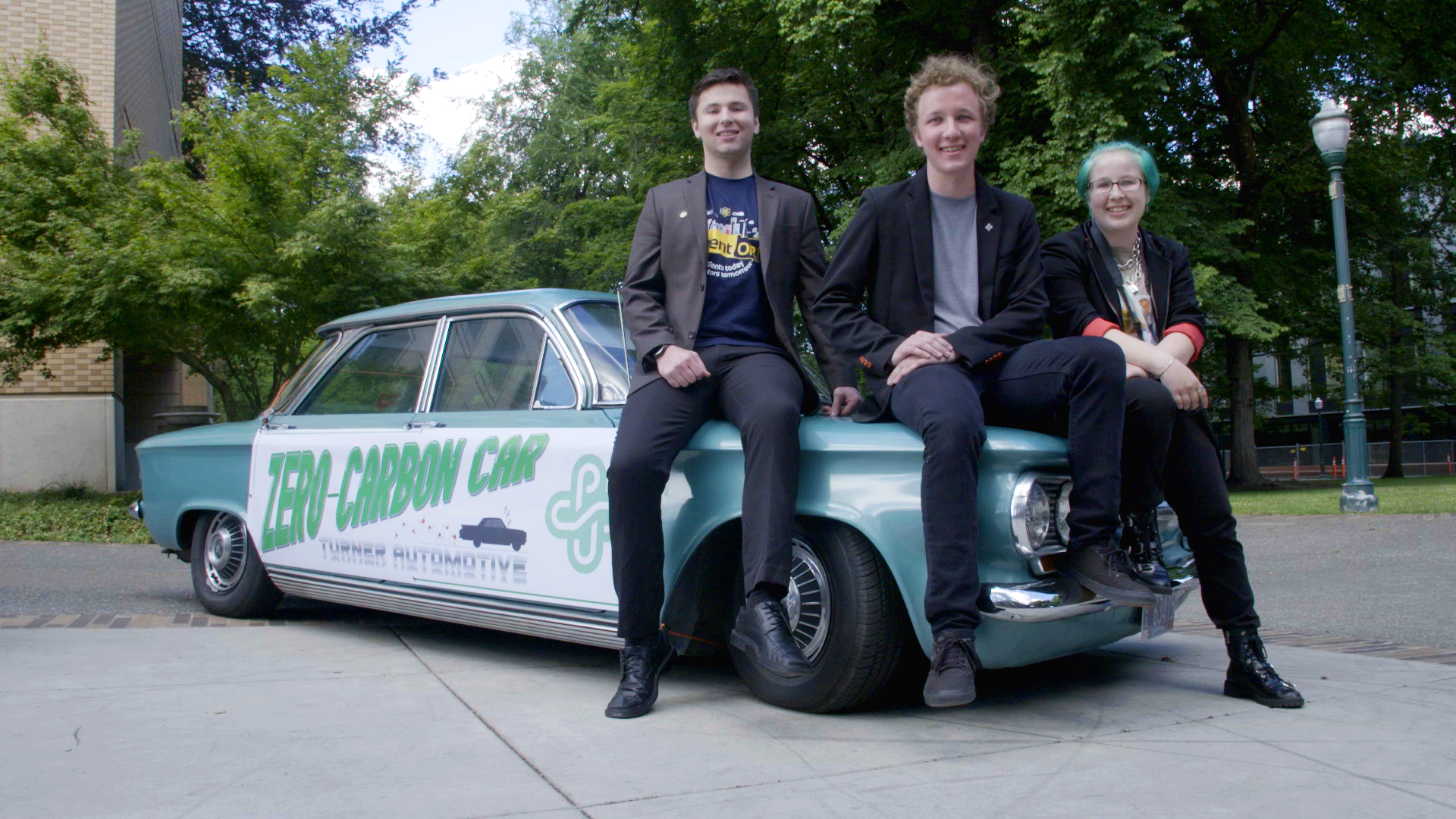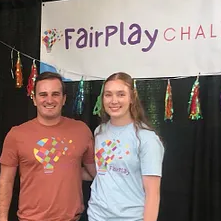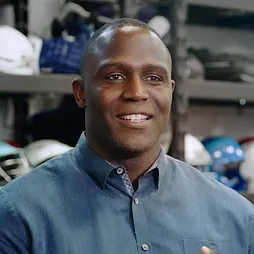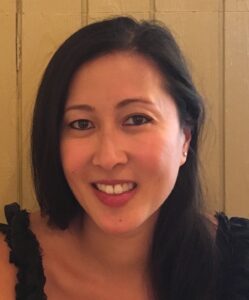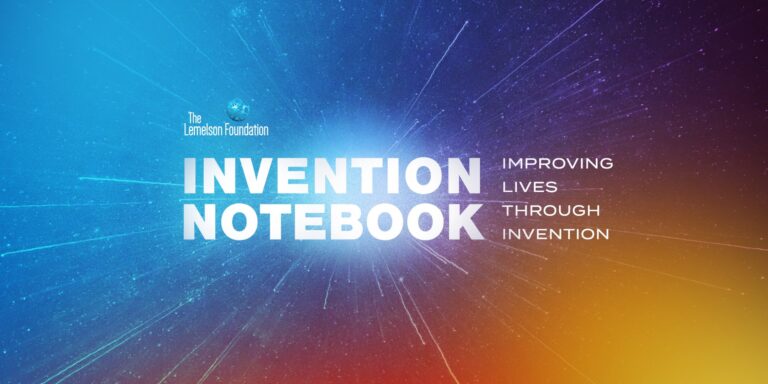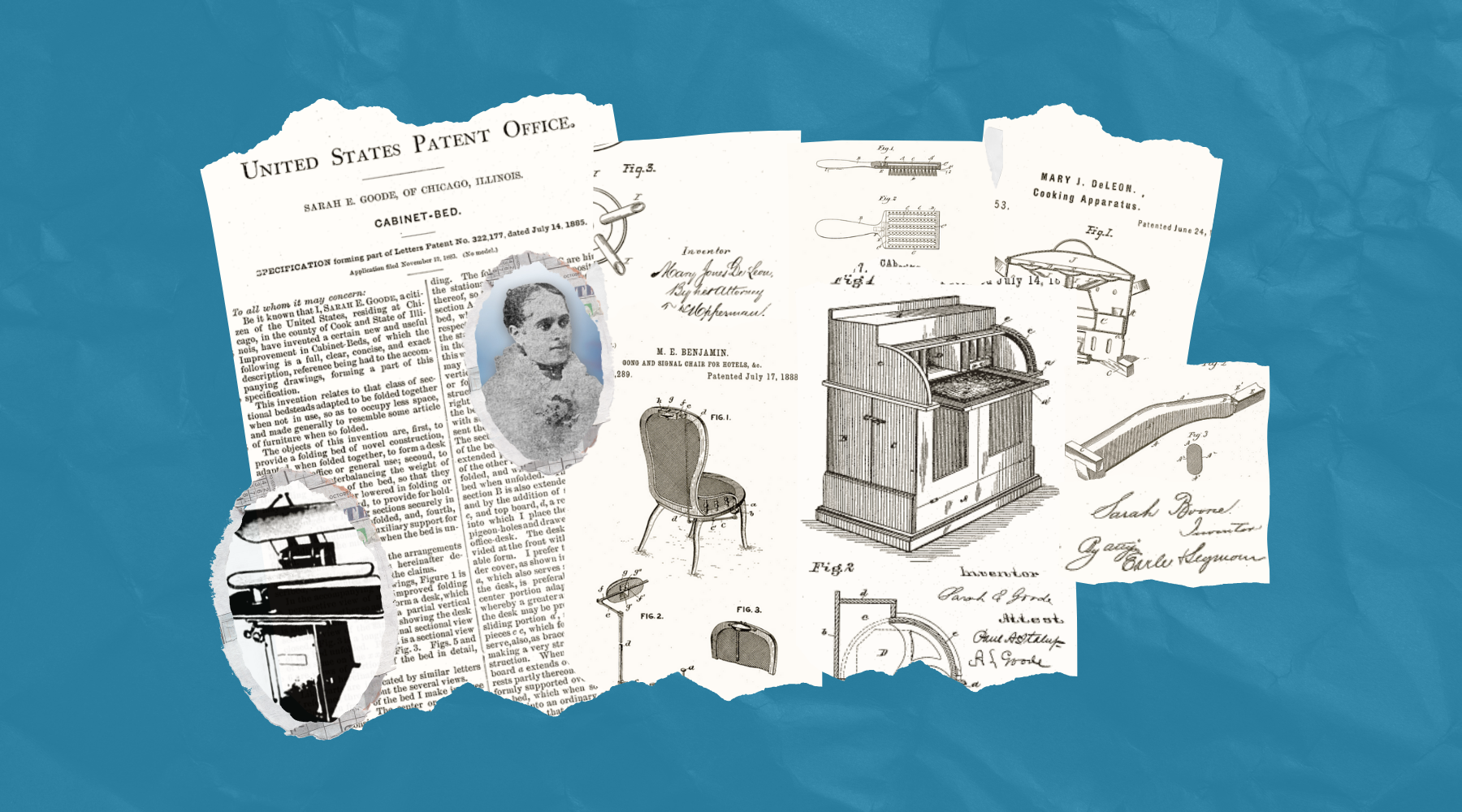The Role of Philanthropy in Supporting Impact Entrepreneurs

(Pictured above: Entrepreneurship Funders Network Executive Director Ifeoma Aduba, center, with peers at the 2024 EFN Convening. Photo: Naaman Brown.)
A network of philanthropic funders is helping innovators navigate challenging times
As entrepreneurs and innovators in the U.S. face unpredictable shifts in funding sources and industry disruptors like AI, there’s an even greater need for support networks to help them navigate a rapidly transforming landscape.
This current need also underscores the vital role that philanthropy can play in supporting entrepreneurship ecosystems. While many don’t make an immediate association between philanthropy and the private sector, more funders are looking toward impact innovators and entrepreneurs who can deliver on economic, social, environmental, and health goals.
Organizations like the Entrepreneurship Funders Network (EFN) are filling a critical gap by convening philanthropic funders to find new ways to improve conditions for entrepreneurs and inclusive entrepreneurship. EFN was launched in 2017 with six founding member organizations — The Lemelson Foundation, Blackstone Charitable Foundation, Kauffman Foundation, Skoll Foundation, Case Foundation, and Telluride Foundation. It’s grown to 26 funding organizations, and continues to welcome more funders to the table.
Executive Director Ifeoma Aduba is on the ground helping EFN identify opportunities to make access to entrepreneurship more inclusive. For 25 years, Aduba has worked across sectors building programs and creating effective networks.
We recently spoke to her about how philanthropic funders can support entrepreneurs, build equitable ecosystems, and bolster innovation in the face of disruption and new challenges.
This interview has been edited for length and clarity.
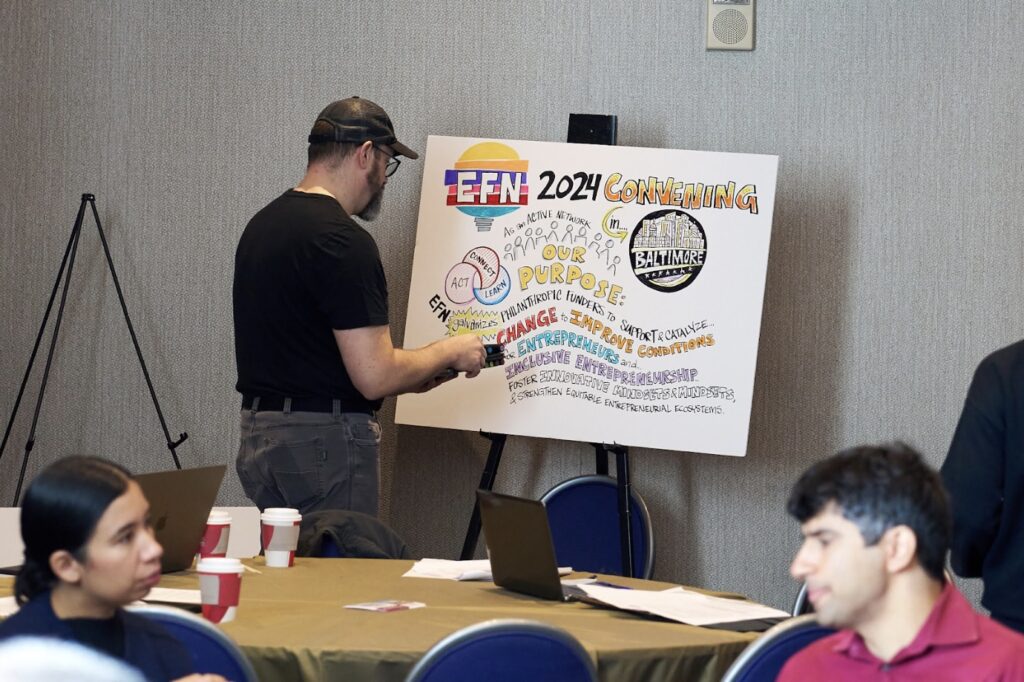
How would you describe the mission of EFN?
The most important thing about the Entrepreneurship Funders Network is its vision to build vibrant communities that are fueled by equitable entrepreneurial ecosystems. Innovative mindsets like that are the key to the heart of EFN.
Our purpose is to galvanize philanthropic funders to support that work, and that can happen in myriad ways. But it’s about catalyzing them to think about how they can improve the experience of entrepreneurs and inventors, and what they can also do to foster that innovative and inventive mindset in youth.
How did EFN get started? What gap was it trying to fill?
It was birthed from foundations that supported entrepreneurship talking to each other and just starting to organically get in the same room together. Before that, this type of network didn’t exist. It’s not typical to see foundations funding entrepreneurship. There are many who initially wonder about how it qualifies as charitable, and so that perception can often be a barrier. But the charitable purpose that is driving the funding in this space is this idea of how entrepreneurship is a strategy for improving individuals’ and communities’ lives, and how it ripples out.
How would you describe the different types of members in EFN?
It’s this real mix of foundation types — family, corporate, and community foundations. There are those who are funding hyper-locally, regionally, and nationally, but there are also some who are global funders.
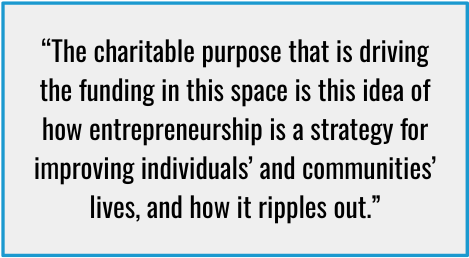
There’s varied capacity in their grant-making capability. Some make smaller grants, while others have the capacity to make large transformational grants, and their strategies vary from a focus on grant making to program-related or mission-related investments. But the thing that connects all of the funders in EFN is that they are putting dollars into the U.S.
What are some of the issues or barriers around accessing funding in the invention and innovation space in the U.S. right now?
I think there can be challenges around finding funders who can look past the risk of invention — when something’s entirely new, and there aren’t these kinds of tried and true and tested benchmarks. We live in a time that loves metrics and guarantees, and this is a space that gets people out of their typical comfort zone.
I remember having a grantee at an EFN event on the stage, and he asked the audience of funders: “Do you want us to do innovative and groundbreaking? Or do you want us to do what you’ve seen before? You can’t ask us to think outside of the box, and then come back and ask if there’s a proven best practice to back up the choice that we made.”
It’s that kind of tension with traditional funding methods that can show up in this space. When you’re talking about invention, you’re dealing with a technology that isn’t necessarily proven. But the gains on the other side of that innovation can be great.
How do you balance between the needs of entrepreneurs and funders?
I try to spend a lot of time not only listening to what funders are contending with, but also listening to what folks out in the field are contending with. Part of my job is trying to help be a bridge between them and identify opportunities to overcome those challenges.
We have to listen to the people who are on the ground doing the work — who are creating, who are inventing, who are launching businesses — to understand what their obstacles are. Those times you were moving forward, and then all of a sudden, something came to a screeching halt. But also, what was that moment when you were energized? Is there a space for philanthropy to step in there and help with that?
What barriers to entrepreneurship are historically marginalized communities facing?
Communities that haven’t had the same level of resource investment overall may not have the same networks. You don’t have the generational wealth that you can tap into that helps you get past hurdle one and hurdle two. Some people can help get things off the ground with their own financing, but getting to that point can be a challenge for others. So it’s about figuring out how to navigate through those systemic barriers and what philanthropy can do to help provide support in that space.

How do you see the importance of fostering young entrepreneurs?
If you’re thinking about entrepreneurship, let’s not wait until they’re adults. This is our future workforce, right? Why wouldn’t we want them to be as creative as possible about problem solving? We don’t know yet what we’re going to face in the future, but what we do know is that things are not predictable. And so let’s build those skills of creativity and problem solving as much as possible.
We’ve looked at different strategies for engaging with youth and there are so many different ways to approach it, but it’s important to make sure that there are a lot of touchpoints and opportunities and entryways that occur early and often in the lives of students. And I think things like entrepreneurial programs and invention education are doing just that.
What issues do you see impacting funding for entrepreneurs in our current climate?
We’re in this period of really profound social and economic uncertainty. I recognize that people just don’t like it when the ground feels shaky under them, and so that leads to a lot of risk aversion for investors.
Funding shifts are happening, and the reality is that there are gaps being created in this current environment that are not easily or quickly filled. We have some funders who have decided that they need to completely excuse themselves from the table, and the other funders just don’t have the resources to quickly shift and fill that. I think that’s absolutely going to be a barrier and a roadblock that we see play out over the next several years.
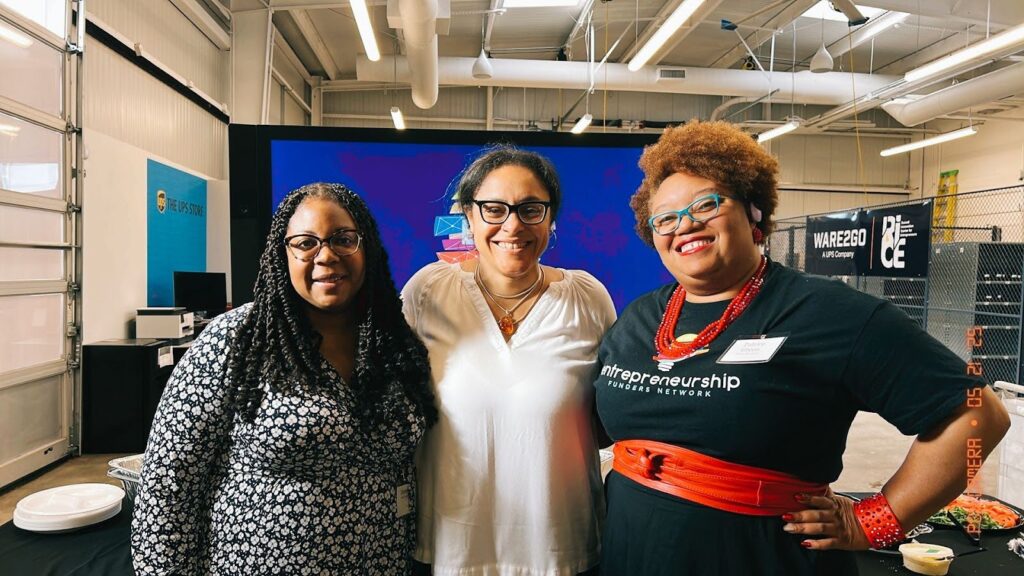
My hope is that it leads to some creativity — people thinking differently about how they invest their dollars again, and even innovators on the ground starting to think creatively about what partnerships could look like, what mergers look like, how they can support each other, how they can think about their assets a little differently.
How do you see technology shifts like AI impacting entrepreneurship and helping entrepreneurs?
One example of the uses of AI comes from The Singleton Foundation based out of Los Angeles, which is a member of EFN. They have a program called Slyngshot, which they’ve been building out over several years, and that helps with getting a business launched with a number of prompts. They’ve built out some AI supports that within moments can help people get to a business plan and overcome different obstacles, whether it’s looking for funding or business support organizations.
I sat through a presentation where AI helped design a logo and build a website in five minutes. I do think there are these opportunities to tap into AI to help entrepreneurs get over some of those initial startup humps.
What other approaches are you seeing within EFN that makes you hopeful about the entrepreneurship funding space?
I’ve been really excited about some of our regional funders, because they have such a deep passion and relationship to the communities that they’re in. When I look out to Los Angeles, one of our members there, the Wurwand Foundation, has a real appreciation for what small businesses mean for building wealth and community. With the fires in LA earlier this year, I talked to several folks who had been funded by the Wurwand Foundation and were able to connect with each other in moments of crisis.
Another one is the New Economy Initiative based in Detroit, which I think is a beautiful example of what can be possible when foundations come together and really make a commitment to a community. That program was launched by foundations who said, “We’re going to turn around the economy of southeast Michigan. We don’t know how yet, but we’re committed to doing it.” And they chose to focus on economic mobility at a time when Detroit needed it the most.

What brought you to the entrepreneurship field and to EFN?
My father was a lifelong entrepreneur. He was a mechanical engineer from Nigeria. When I was a kid, we lived in Nigeria for a couple of years when he was designing and building water systems to create clean water access.
What I always knew was that my dad was doing work that changed lives, and in really humble ways. It wasn’t about his own wealth creation. It was really about, “This is something that I can do that’s beyond what’s good for me, and is good for generations to come.” And that’s how I developed my understanding of how entrepreneurship can change communities. I’ve watched it all my life. There are people who have electric access and have power running in their homes in Nigeria right now because my dad got them access to solar and installed it.
I was also driven by a kind of catalytic thinking model that is rooted around: “What’s the problem we’re trying to solve? What does good look like? And who else cares about this?” Creating a network of foundations to figure out how to pull these resources together across the country and support entrepreneurship is new — and I’m excited that I get to help build it.

Important Disclaimer: The content on this page may include links to publicly available information from third-party organizations. In most cases, linked websites are not owned or controlled in any way by the Foundation, and the Foundation therefore has no involvement with the content on such sites. These sites may, however, contain additional information about the subject matter of this article. By clicking on any of the links contained herein, you agree to be directed to an external website, and you acknowledge and agree that the Foundation shall not be held responsible or accountable for any information contained on such site. Please note that the Foundation does not monitor any of the websites linked herein and does not review, endorse, or approve any information posted on any such sites.

